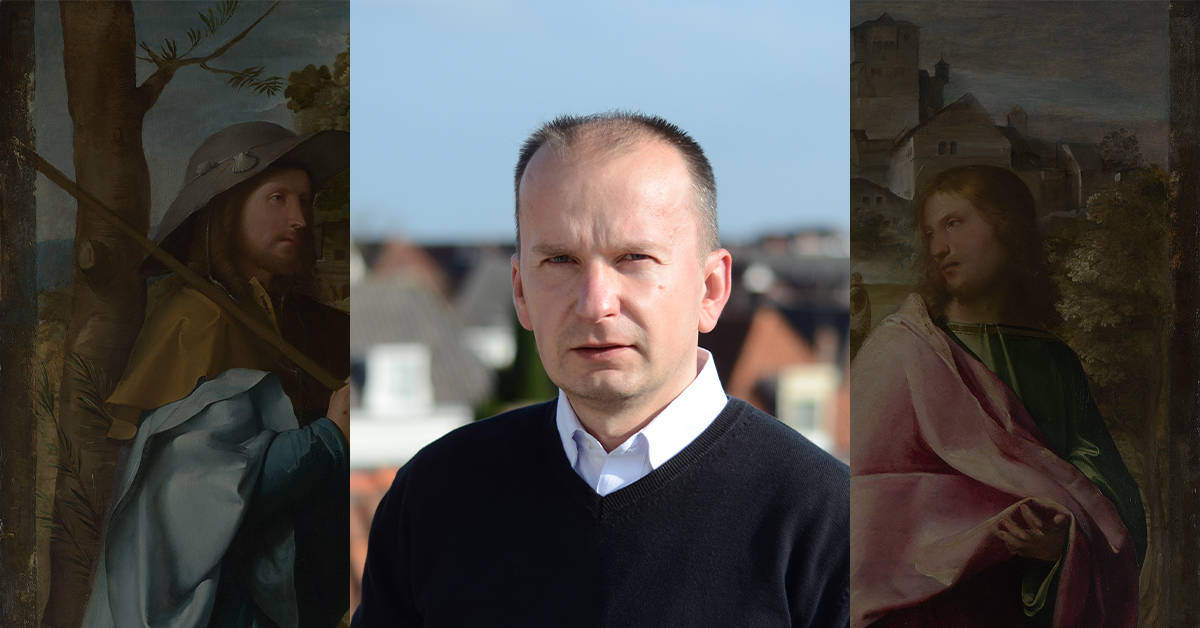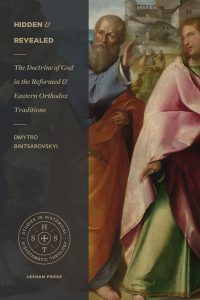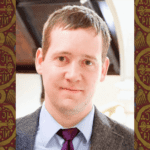
This week we are highlighting five new volumes in the Studies in Historical and Systematic Theology (SHST) series recently published in July. Today we interview Dmytro Bintsarovskyi about his new book Hidden and Revealed: The Doctrine of God in the Reformed and Eastern Orthodox Traditions.
Lexham Press: What sparked your interest in comparing Reformed and Orthodox theology of God’s hiddenness?
Dmytro Bintsarovskyi: I became a Christian in a broadly Evangelical church, but Reformed theology played a crucial role in my theological formation. The interest in Eastern theology is explained rather by the fact that I was born and lived in a country with an Orthodox majority (Ukraine). Hence these two traditions.
In both traditions, God’s hiddenness has been an important topic: Orthodox theologians emphasize the idea of the unknowability of God’s essence, the apophatic orientation of their theology, and the mysterious world of the liturgy, while Reformed theology has been characterized by a strong accent on the transcendence and majesty of God and the hiddenness of his will.
LP: You approach the topic through the writings of Herman Bavinck and John Meyendorff. Why these theologians?
Bintsarovskyi: Both Orthodox and Reformed traditions are too rich, so I had to focus on one theologian from each to undertake an in-depth study. But why these two? Well, first, Bavinck and Meyendorff are reliable representatives of their traditions. To be sure, they did not just repeat old theological formulas, but tried to reinterpret them in a next context (in the case of Bavinck – especially modernism; in the case of Meyendorff – especially existentialism). Still, both sought to remain faithful to their traditions. The second reason is that the doctrine of God occupies an important place in their theologies. For Bavinck, all theology was about God. He was called “a theologian of revelation” due to his emphasis on this doctrine. Meyendorff was the best expert on Palamas’ theology with its essence-energy distinction, which is directly related to my topic. Finally, Bavinck and Meyendorff had an ecumenical spirit and the sense of history realizing the role of the tradition shared by all Christians.
LP: Did you encounter any surprising discoveries in your study?
Bintsarovskyi: I would mention two things. Before beginning my study, I knew, of course, that Bavinck tried to emphasize God’s incomprehensibility. It is remarkable, for example, that he opens his doctrine of God with saying that mystery is the lifeblood of dogmatics, or that Karl Barth found in Bavinck the only recent dogmatician who realized the importance of this topic. What I discovered only later, however, is that this emphasis forms part of Bavinck’s broader theological vision full of reverence for any kind of mystery: not only of God, but also in creation.
Second, according to the conventional opinion, it is two Eastern Orthodox doctrines—the reality of the mystical union with God and the inaccessibility of his essence—that make the doctrine of God’s energies necessary. God is certainly communicable (as the experience of the saints testifies), but he is not communicable in his essence—hence, he must be communicable otherwise, namely, in his energies. What I found in Meyendorff, however, is that mystical union alone makes both the incommunicability of God’s essence and the doctrine of God’s energies necessary. To be orthodox and attainable, the union demands both doctrines: without the incommunicability of God’s essence, mystical union (as described by Meyendorff) becomes pantheist, and without the doctrine of God’s energies, mystical union is impossible.
LP: What contribution do you hope to make with this book, and what do you hope readers take away from it?
Bintsarovskyi: Despite some fruitful Orthodox-Reformed interactions and several contributions by individual authors, the dialogue between the Reformed and Orthodox traditions still leaves much to be desired. So I hope that my book will help both Orthodox and Reformed people to understand each other better and probably learn from each other.
In treating some themes in Orthodox theology (such as divine energies or the priority of God’s personhood over his essential unity), I consciously chose a rather systematic approach. While I realize that Meyendorff (and other Orthodox theologians) prefer a lower level of systematization, I hope that this approach will help readers understand the complexities of the Orthodox doctrine.
In the last chapter, I offer a sketch of my own understanding of the relation between God’s hiddenness and revelation. The reader will see, in particular, why I have some problems with the assertion of the unknowability of God’s essence. The assumption of this assertion is that if we want to emphasize the mysteriousness of God, we must affirm his unknowability (namely, the unknowability of his essence) in the strongest terms. In other words, if we want to somehow temper the Reformed pursuit of the knowledge of God, or if we want to somehow restrict the Orthodox aspiration to the closest union with God, we must proclaim God’s essence to be completely unknowable, imparticipable, and inaccessible. I am not convinced, however, that such assertion serves its purpose. The problem is that if we argue that God’s essence is unknowable, then it appears to collapse into a category devoid of any discernible content for us. If so, we cannot meaningfully use it in theology and focus exclusively on that which is actually revealed and communicated, and tend to clearly demarcate that which is revealed from that which is not. The better approach in my view is to say that God’s essence is knowable from what God has revealed to us, but only to a very limited extent. We are constantly reminded then that whatever attribute we apply to God based on his revelation, he infinitely surpasses it. It is not that God’s incomprehensibility diminishes in proportion to the increase of revealed knowledge. Rather, revelation progressively discloses new facets of his incomprehensible being. For example, God reveals his mercy more fully in the New Testament than he did in the Old Testament. However, this fuller revelation does not subtract from the mysteriousness of God’s mercy, but rather demonstrates more clearly that his mercy is immeasurable and exceeds our understanding.
Hidden and Revealed
The past century has seen renewed interest in the doctrine of God. While theological traditions disagree, their shared commitment to Nicene orthodoxy provides a common language for thinking and speaking about God. This dialogue has deepened our understanding of this shared way of thinking about God, but little has been done across ecumenical lines to explore God’s hiddenness in revelation.
In Hidden and Revealed, Dmytro Bintsarovskyi explores the hiddenness and revelation of God in two separate theological streams—Reformed and Orthodox.
According to Hans Boersma, Saint Benedict Servants of Christ Chair in Ascetical Theology at Nashotah House Theological Seminary, “Bintsarovskyi charts his own path in assessing the knowability of God, rightly centering on God’s revelation in Jesus Christ. This is ecumenical dialogue at its best.”








